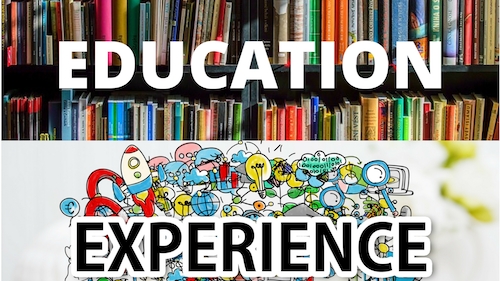Since ages, organisations have had to take a tough call in terms of hiring manpower—whether to hire well-qualified candidates or well-experienced ones. While some industry experts vouch for well-educated minds, some argue in favour of experienced individuals, as they are the ones who know the ropes.
Human capital forms the base for every organisation. In this information age, companies are ready to go an extra mile to hire the best candidate. For instance, Microsoft hired a student from IIT through campus recruitment at a yearly package of a whopping Rs 1.39 crore.
Education shapes peoples’ concepts and forms their knowledge bank. Many companies believe that candidates with a strong educational foundation are required to perform a job exceptionally well. In HR terminology, such candidates are referred to as ‘good pedigree’. They come from top B-schools/ tier 1 institutes, are consistent performers and have high intellectual quotient. “New-age organisations mostly look for qualifications. The intention is to bring in fresh blood and more creativity to the table. If the fundamental understanding of philosophies is clear, life becomes easier in terms of learnability,” says Anil Mishra, chief human resources officer at magicbricks.com.

Many a time, candidates from premiere institutes have a lot of unlearning and relearning to do. Hiring them may not necessarily yield positive results always.
However, there is a flip side to every coin. Fresh minds lack long-term vision. They are unable to foresee upcoming challenges and are aggressive in nature. “Many a time, candidates from premiere institutes have a lot of unlearning and relearning to do. Hiring them may not necessarily yield positive results always. Much depends on their attitude and openness to learn, and that varies for individuals,” opines Ajay MK, head-HR for Colgate-Palmolive, South Asia.
While qualified candidates have a sharper learning curve, experienced professionals bring insight, vision and years of industry knowledge. Organisations look up to experienced professionals, especially for leadership positions, which require critical decision making and manpower- management skills. “A person who comes with experience can easily align himself to the company’s goals and start delivering immediately”, says Haresh Chaturvedi, vice president – HR, Reliance Industries.

New-age organisations mostly look for qualifications. The intention is to bring in fresh blood and more creativity to the table. If the fundamental understanding of philosophies is clear, life becomes easier in terms of learnability.
Many organisations feel that experienced candidates are often corrupted by past knowledge. They have predefined methods of executing tasks and are resistant to change. “The world is changing at an alarming rate. What has worked for you earlier will not work for you in future. Hence, irrespective of the years of experience, one should always be open to experimentation,” says Ajay MK.
Experienced professionals these days understand the importance of higher education. They take up new initiatives to plan their career trajectory and focus on their professional development plan. A study by Deloitte indicates that 44 per cent of college and university students are 24 years of age or older. Thirty per cent attend part-time classes, 26 per cent work full time while enrolled, and 28 per cent take care of children or other dependents while pursuing their post-secondary studies. While this acts as a motivation factor for employees, companies see it as a business investment—the fruits will ripen with time. Organisations are also working towards shaping the career growth of their employees. Nestlé, for instance, has tied up with IIM Kolkata for the academic aspirations and progression of their employees.

A person who comes with experience can easily align himself to the company’s goals and start delivering immediately.
The trend of hiring younger generations at leadership positions is catching up. Organisations are looking at hiring youngsters to bring in innovation and stay competitive. Manu Kumar Jain, aged 37, currently serving as the managing director of Xiaomi India and vice president –Xiaomi is one such example.
In the race to hire the best candidates, organisations are losing out by narrowing it to education or experience. Be it start-ups or big companies, organisations need to determine ‘why they are hiring’ before devising their parameters and strategy. Instead of concentrating on education or experience, hiring managers should challenge the status quo and focus on hiring the right candidate.
Value our content... contribute towards our growth. Even a small contribution a month would be of great help for us.
Since eight years, we have been serving the industry through daily news and stories. Our content is free for all and we plan to keep it that way.
Support HRKatha. Pay Here (All it takes is a minute)




































